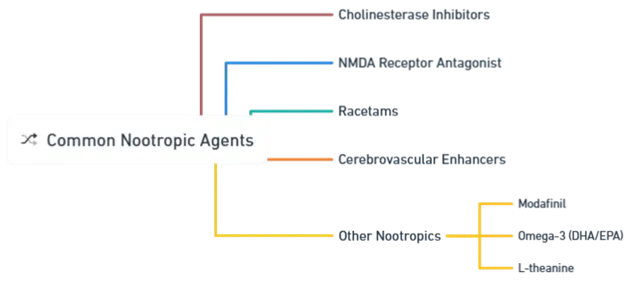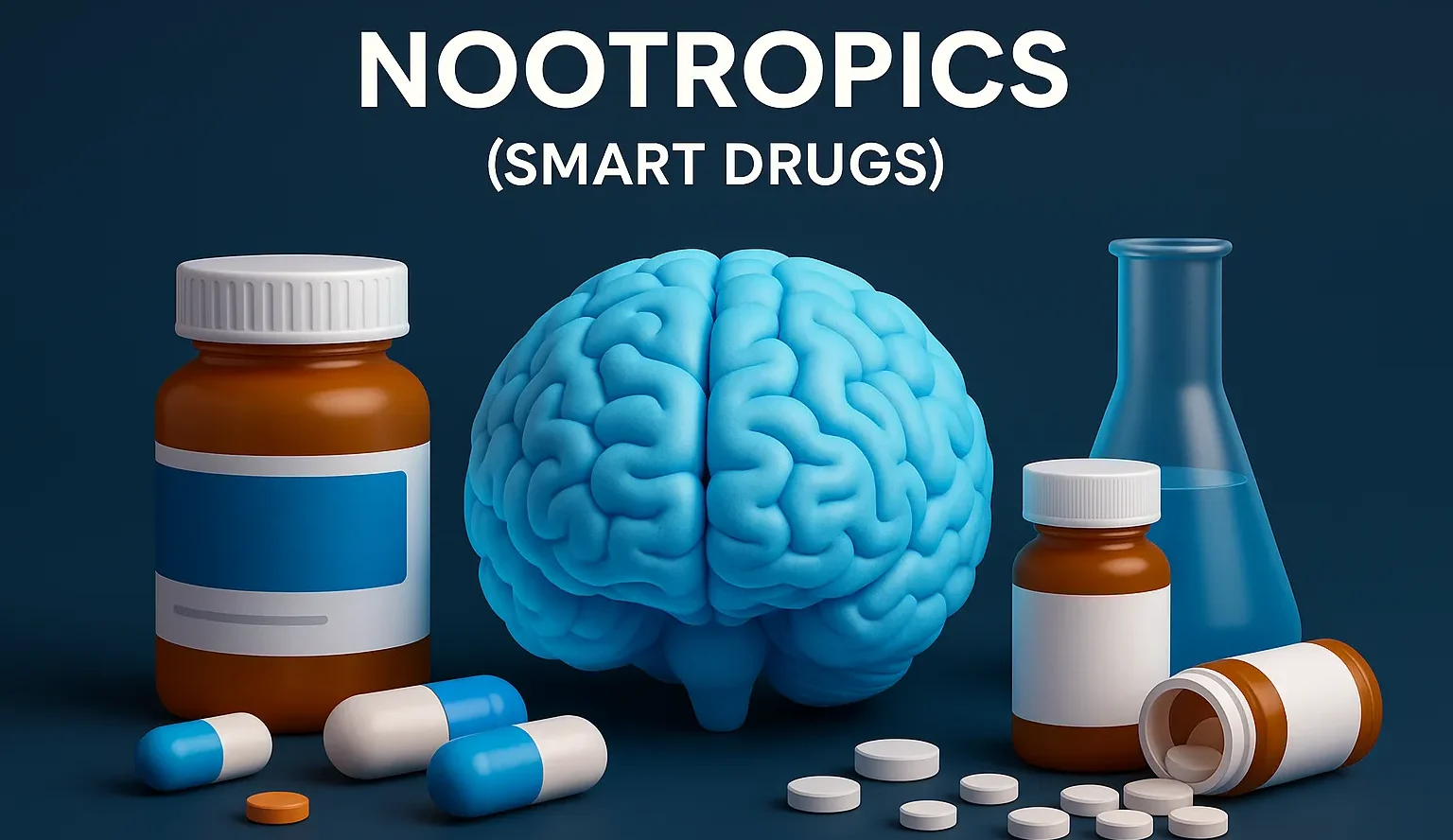Nootropics (“Smart Drugs”) are cognitive enhancers that improve memory, focus, learning, and mental performance.
Definition of Nootropics (“Smart Drugs”):
- Nootropics are agents that enhance cognitive functions such as memory, learning, creativity, and attention, especially in individuals with cognitive impairments.
- Some also show mild effects in healthy individuals.
Common Nootropic Agents:

-
Cholinesterase Inhibitors
- Examples:
- Donepezil, Rivastigmine, Galantamine
- Mechanism:
- Inhibit breakdown of acetylcholine, improving synaptic transmission in the brain
- Use:
- Alzheimer’s disease, dementia
- Examples:
-
NMDA Receptor Antagonist
- Example:
- Memantine
- Mechanism:
- Blocks excess glutamate activity to prevent excitotoxicity
- Use:
- Moderate to severe Alzheimer’s
- Example:
-
Racetams
- Examples:
- Piracetam, Aniracetam
- Mechanism:
- Enhance neurotransmission via AMPA, NMDA, and cholinergic systems
- Improve neuronal plasticity
- Uses:
- Cognitive impairment (experimental/controversial in healthy individuals)
- Adverse Effects:
- Generally, well tolerated
- Insomnia, nervousness in some cases
- Examples:
-
Cerebrovascular Enhancers
- Examples:
- Vinpocetine, Ginkgo biloba (herbal)
- Mechanism:
- Increase cerebral blood flow
- Antioxidant properties
- Uses:
- Age-related memory decline
- Post-stroke recovery (limited evidence)
- Adverse Effects:
- Bleeding risk (Ginkgo)
- GI upset, dizziness
- Examples:
-
Other Nootropics
- Modafinil (also a stimulant): Enhances executive function and wakefulness
- Omega-3 fatty acids (DHA/EPA): Supportive role in cognition and mood

